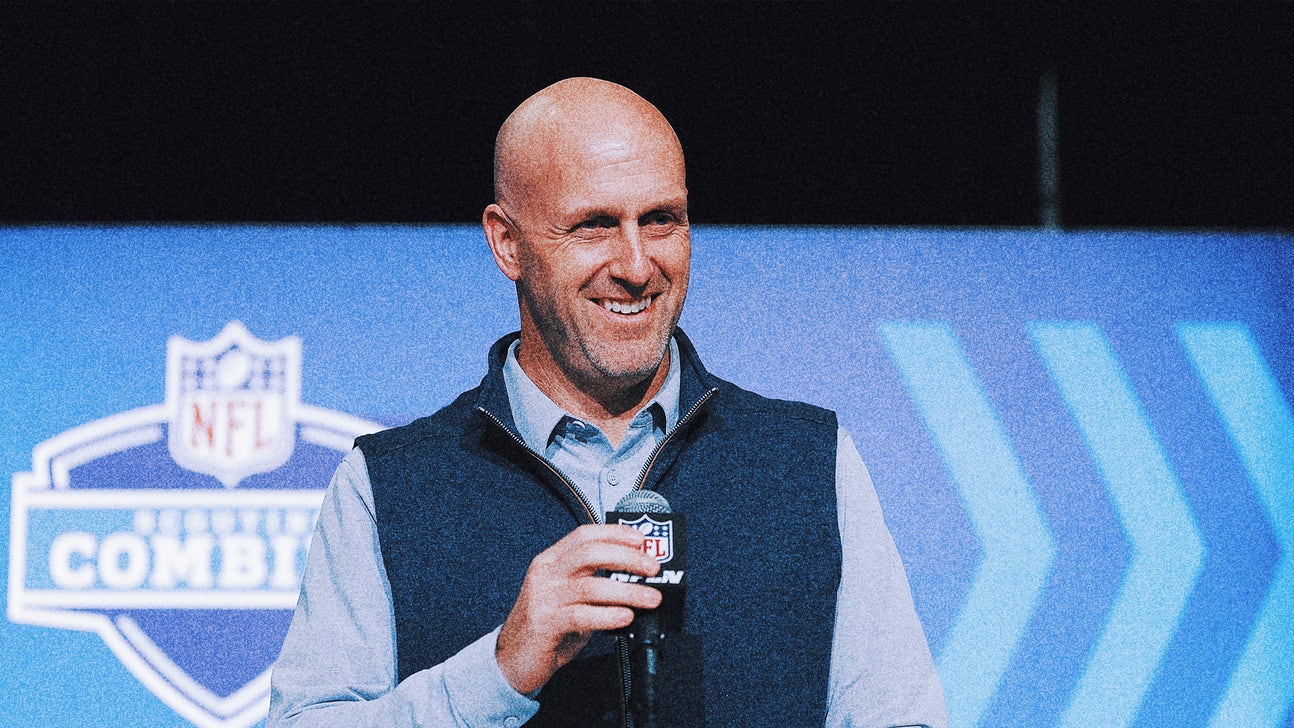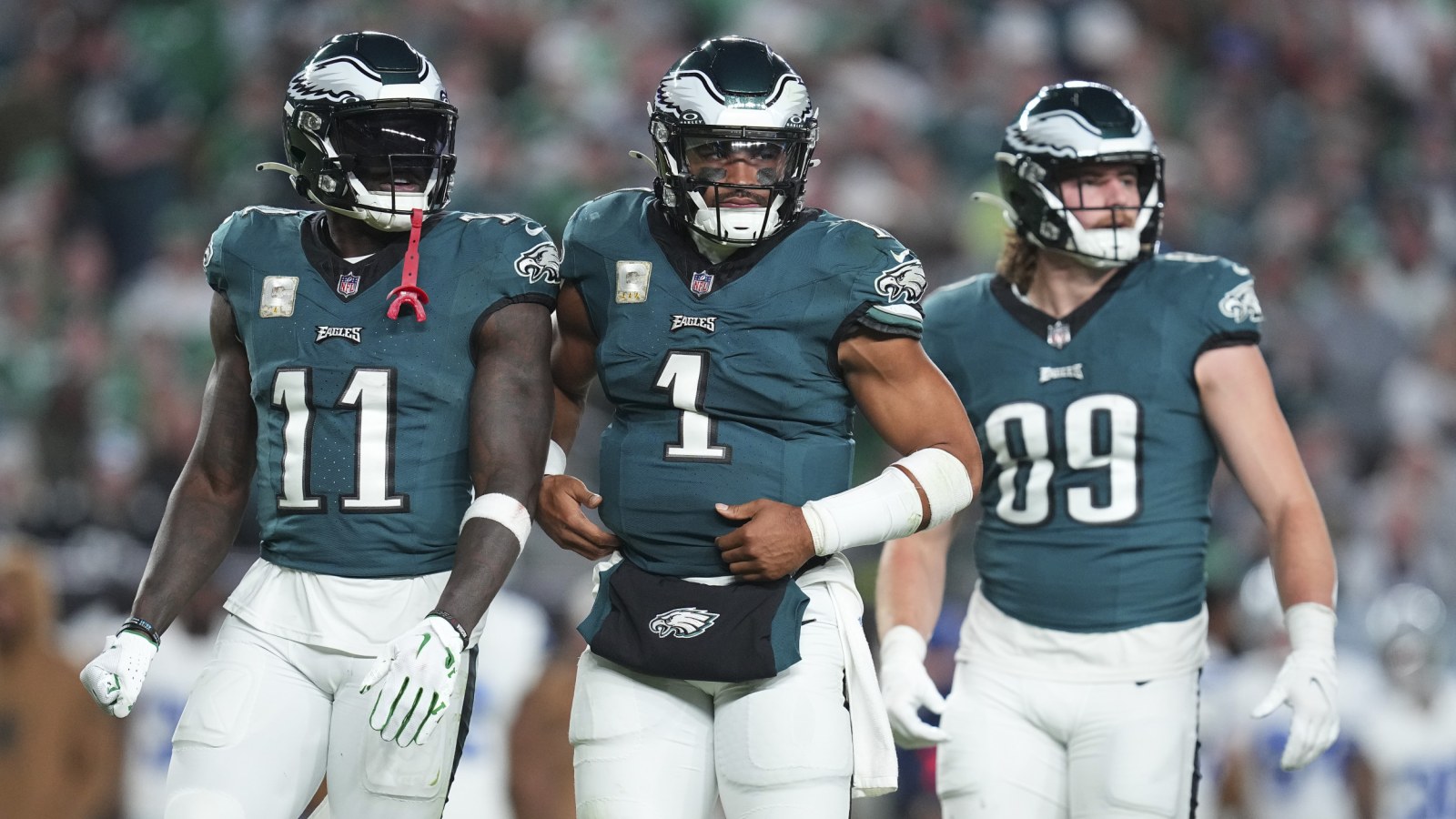Mann to Eagles: The Unexpected Trade That Shook the NFL!
The NFL is known for its dramatic trades, and one deal that stands out in recent history is the trade that sent Carson Palmer to the Philadelphia Eagles. On March 12, 2012, the Cincinnati Bengals shocked the league by trading their long-time quarterback to the Eagles, a move that would have far-reaching consequences for both teams. In this article, we'll take a closer look at the trade, its lead-up, and the impact it had on the NFL.
The 2011-2012 NFL season was one of great upheaval for the Bengals, who finished with a dismal 5-11 record. The team's front office was under pressure to make significant changes, and the trade of Carson Palmer was a key part of that effort. Palmer, who had been the Bengals' quarterback since 2004, had become a decline-ing figure on the field, struggling with injuries and inconsistency. Despite his on-field woes, Palmer remained a fan favorite in Cincinnati, and the team had a hard time letting him go.
The Eagles, on the other hand, were looking to shake things up after a disappointing 8-8 record in 2011. The team had high hopes for their young quarterback, Nick Foles, but they also knew they needed to make a move to stay competitive. With a strong team salary cap and a will to spend, the Eagles were the perfect destination for Palmer.
The trade was a complex one, involving several players and draft picks. The Bengals received a first-round pick from the Eagles in 2012, as well as a third-round pick in 2013. In return, the Eagles sent Palmer, a veteran tight end, and a left tackle to Cincinnati. The trade was widely seen as a risk for both teams, but it would ultimately prove to be a savvy move for the Eagles.
The Chemistry of the Trade
Palmers Legacy in Cincinnati
Carson Palmer's time in Cincinnati was marked by controversy and turmoil. The quarterback's off-field antics and declining on-field performance created tension within the team, and the Bengals eventually decided to cut ties with him. Despite his loyalty to the team, Palmer's departure was seen as a necessary evil, and the Bengals were relieved to be rid of the distraction.
The Eagles' Front Office
The Eagles' front office, led by General Manager Andy McDonald, had a clear vision for the team's future. With a strong team salary cap and a willingness to spend, the Eagles were well-positioned to make a big move. By trading for Palmer, the Eagles demonstrated their commitment to winning, and it would set the stage for a successful 2012 season.
The Palmer Factor
Palmer's presence in the league is still felt today. The quarterback's leadership and experience would have a profound impact on the Eagles, who would go on to win the NFC East division title in 2012. Despite his decision to retire in 2012, Palmer's legacy in the league continues to be debated among fans and analysts.
The Impact on the Eagles
An Identity Change
The trade marked a significant shift in the Eagles' identity. With Palmer at the helm, the team was able to establish a strong sense of continuity and leadership. The quarterback's presence on the field would have a profound impact on the team's performance, and his departure in 2012 would create a power vacuum that would take time to fill.
A Renewed Sense of Purpose
The Eagles' 2012 season was a resounding success, and the trade of Palmer was seen as a key factor in their victory. The team's young players, led by Foles and running back LeSean McCoy, would thrive in Palmer's absence, and the franchise would emerge from the trade with a renewed sense of purpose.
The Rise of the Foles Era
Nick Foles' emergence as the Eagles' starter in 2012 was a testament to the team's commitment to developing young talent. With Palmer at the helm, the team was able to establish a strong foundation for the future, and Foles would go on to become a Pro Bowl quarterback in 2013.
The Impact on the NFL
A Changing Landscape
The trade of Carson Palmer marked a significant shift in the NFL's landscape. With the rise of the new guard of quarterbacks, led by Russell Wilson and Ben Roethlisberger, the league was poised for a new era of competition. The trade of Palmer would be seen as a precursor to this shift, as teams began to prioritize youth and talent over veteran presence.
A Reflection of the League's Values
The trade of Palmer also reflected the NFL's values of parity and competitiveness. With a strong team salary cap and a willingness to spend, the Eagles demonstrated a commitment to winning that was on par with the league's best teams. The trade would be seen as a hallmark of the league's efforts to promote competition and excitement.
The Legacy of Palmer
Carson Palmer's legacy in the NFL continues to be debated among fans and analysts. The quarterback's decision to retire in 2012 was seen as a bold move, and his departure marked the end of an era for the Bengals. Despite his on-field woes, Palmer remains a beloved figure in Cincinnati, and his trade to the Eagles will always be remembered as one of the most unexpected moves in NFL history.
The Trade's Lasting Impact
A Turning Point for the Bengals
The trade of Carson Palmer marked a turning point for the Bengals. With a new front office and a new direction, the team would go on to build a successful franchise that would rival the Eagles for years to come. The trade would be seen as a necessary evil, but it would ultimately set the stage for the Bengals' future success.
The Eagles' Dominance
The Eagles' dominance in the 2010s was in large
Fitbryceadams
Camilla Araujo Fansd
Kate
Article Recommendations
- Justin Bieberead
- Eurome
- Karlanenio Case Pos
- Joan Van Ark
- Marietemara
- Bobbi Althoffd
- Rainbowdragonvip
- Patricia Arquette
- Kaitlan Collins Husband
- Saxon Musk



